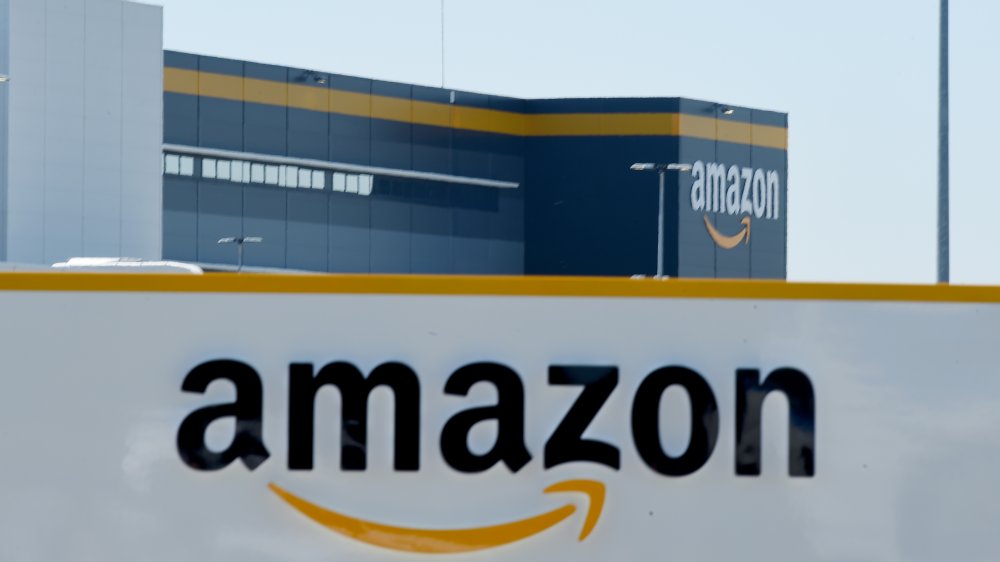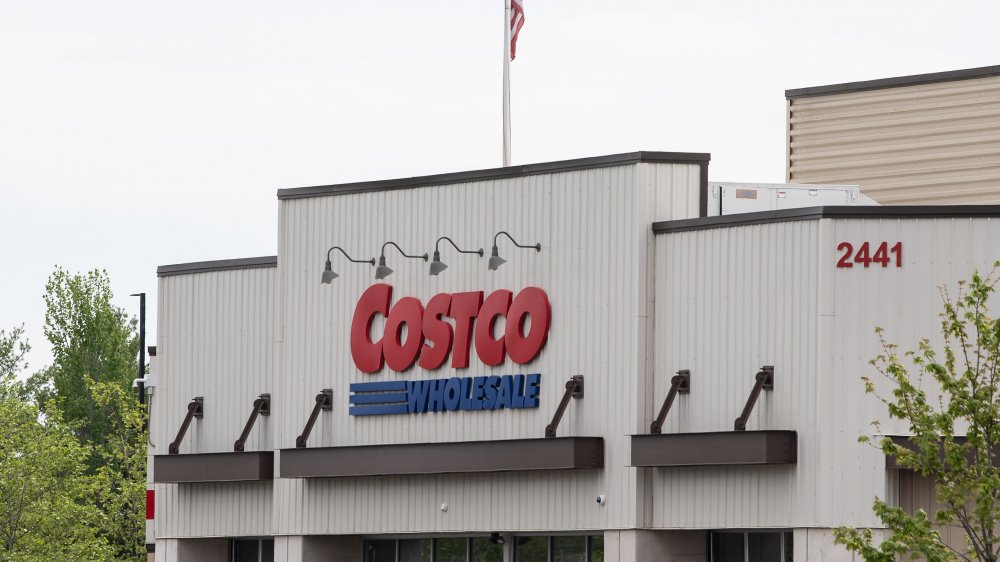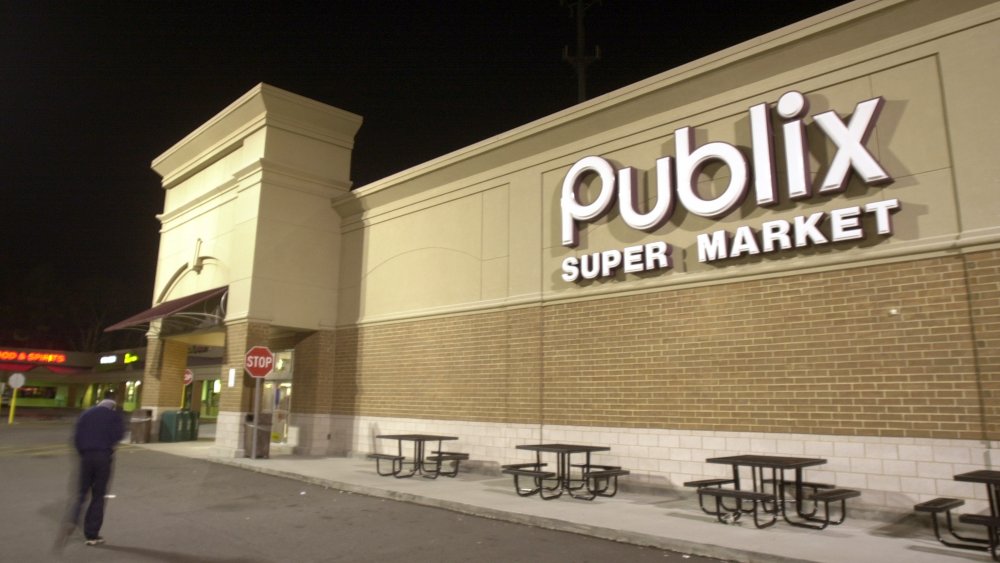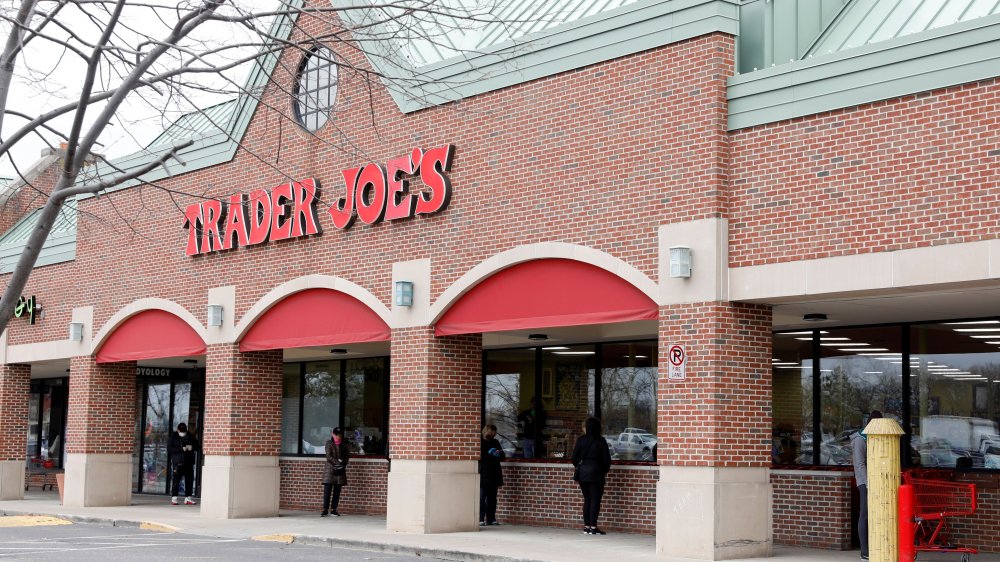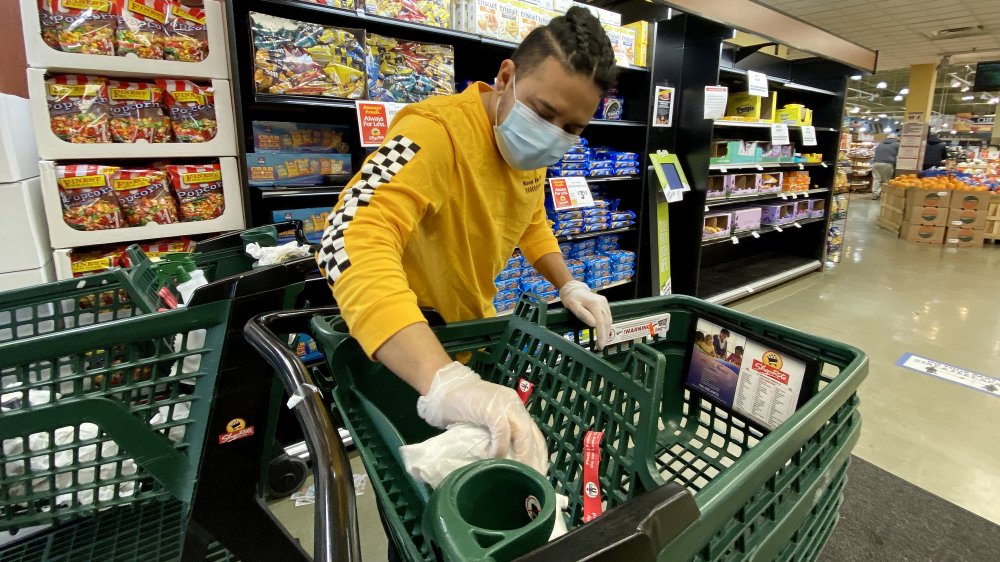The Surprising Food Retailer With Top COVID-19 Response, According To Shoppers
Shoppers' picks for the top retailers in terms of their response to the coronavirus pandemic may not be what you'd expect. Despite commonly hearing gripes about the online shipping giant Amazon, it turns out that a new survey conducted by Magid Food & Beverage Consumer Insights Tracker found that shoppers rate the Amazon experience in a COVID-19 world above shopping anywhere else (via Supermarket News).
Keep in mind the 1,000 shoppers polled in this survey were asked about how Amazon compares to other food and household supply retailers. According to Magid, 30 percent more customers rate Amazon shopping more favorably than those who felt less favorable toward its efforts to keep them flush in must-have products.
Costco, Walmart, Publix, and Kroger were right behind Amazon's lead with a favorable differential rating of 20 percent or more. Food retailers customers were less excited about in the wake of the pandemic include BJ's, Meijer, Whole Foods, Target, and Trader Joe's. The latter announced it would not offer curbside pickup or home delivery of groceries despite the changing needs of the market, with shoppers being urged to shelter in place across the country.
Here's how the COVID-19 response survey worked
In early May, shoppers were asked how they felt each retailer handled the response to the pandemic; specifically, how did each entity deal with product shortages, higher demand, and health and safety concerns. Despite Amazon receiving seemingly tons of bad press about warehouse conditions (just this weekend, ABC News reported an eighth worker died of the virus), the very real experience of not being able to get certain products at all, and Prime basically being canceled for the time being, the retailer walked away with the top spot.
Overall, 41 percent of those surveyed said in general, retailers did a good job adapting to shifting conditions during the pandemic. Just 3 percent said retailers didn't adapt well at all. These survey results fly in the face of what, anecdotally, you might hear people say about their experiences shopping online or in stores. Anyone who couldn't find toilet paper certainly felt something was not working right with retailers' supply chains, and inventory and purchase management.
About the surprising results, Steven Flynn, senior vice president of consumer and commercial brands at Magid noted, "These retailers are putting the health and safety of their shoppers at the forefront and are doing their best to keep items in stock. They have effectively managed busier shopping times in stores, often designating special shopping hours for the elderly, and have limited the amount of people that can be in a store at a time."
Other notable survey findings
It's true a lot has been thrown at our favorite food stores, and it must be said the employees deserve high marks for their bravery in even coming to work despite fearful conditions. That being said, and despite giving Amazon, Costco, Kroger, and Publix high ratings for their response to the virus, the Magid survey also found that 28 percent of shoppers reported having to go to one or more retailers to get the food and supplies they need. Why? Lack of supplies! Another reason they cited was that stores had placed limits on the number of people allowed inside at one time, and had limited store hours. Another head-scratching finding was that 15 percent of those surveyed said their preferred retailer was not taking the necessary safety precautions they should be.
How people are shopping in light of the pandemic may have something to do with why certain retailers rated highly; 45 percent of shoppers said they were purchasing more items online now versus pre-pandemic. Shoppers said they liked being able to check the availability of products online; in other words, no driving to a store, putting on a face mask, and waiting in line to get in, only to discover there's no toilet paper, flour, baking soda, paper towels, hand soap, or frozen pizza as far as the eye can see. Not having to fret over social distancing and touching unnecessary objects were other reasons shoppers understandably reported a preference for online purchasing.
What shoppers say about post-pandemic purchase habits
Finally, 69 percent of shoppers oddly claimed the experience of shopping at a new favorite retailer is better or the same since the outbreak. Even more puzzling: the top stores shoppers said they switched to and would likely continue shopping post-pandemic were Albertsons, Sam's Club, and Trader Joe's. Yet these stores' responses to COVID-19 were not as highly rated by shoppers in the first phase of the survey.
Flynn explains: "In the first wave of our study, we found that much of the switching between retailers was due to a lack of supplies/availability of products. However, now we are finding that these consumers are sticking with these retailers because they are finding they are having a better experience at these stores and that they can get everything they need in one place. Other factors are that some shoppers are looking to save money due to the shifts in the economy or are interested in trying new products and brands for fun as they look to get through lockdown."
Getting sick of the same old stuff is definitely relatable. Because who knows how long we'll be mostly cooking at home? In fact, according to the survey, many shoppers expect it could take between three and 12 months for grocery shopping to return to normal.
What stores must do to earn shoppers' trust
In the meantime, according to Flynn, health and safety must remain top of mind for food retailers if they want to maintain the customer growth they've seen during these unprecedented times.
"Retailers need to put a heavy emphasis on proper health and safety measures to win back consumers," Flynn told Supermarket News. "We found that having sanitary wipes and frequently using sanitary mists on shopping carts were the top actions that retailers can take to win back the trust of consumers and get them to return to their stores. Additionally, consumers would like to see self-service and curbside pickup continue, as it gives them the freedom to choose whether they would like to interact with employees or not."
And with Amazon, that's always a "not," explaining why the company may have maintained its mostly-favorable rating with shoppers in the face of multiple setbacks.
